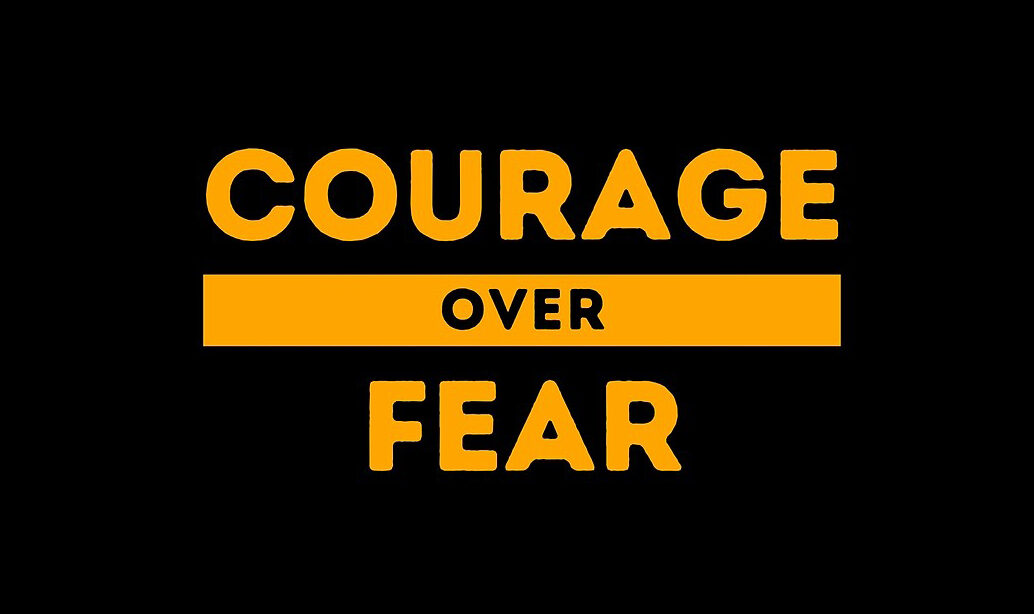Courage Against Bullies – It’s Charity’s Nature To Avoid Confrontation

Courage Against Bullies – It’s Charity’s Nature To Avoid Confrontation is Jim Eskin’s take on how to truly inspire change within the charitable sector. Here’s what this fundraising veteran has to share
“There is a stubbornness about me that never can bear to be frightened at the will of others. My courage always rises at every attempt to intimidate me.” ― Jane Austen, Pride and Prejudice
As both a practitioner for three decades in higher education advancement, and now serving as a fundraising consultant/trainer working with a wide range of non-profit leaders over the past six years, many observations and conclusions are coming into focus.
Most are good. But like any sector, we have ample opportunities for improvement. Successful organizations honestly assess both their strengths and weaknesses and take concrete steps to make improvements in areas where they are weak and maximize opportunities to tap strengths to their full extent.
I would like to highlight a leadership quality that is always essential in organizations of all different sizes, missions and parts of the country to sustain momentum and move forward in doing an even better job in filling their noble missions.
This character is courage. To be blunt, it’s much easier to talk about it than to live it and make it an intuitive part of your leadership style. In short, it is the admirable capacity to stand up for doing the right things even at the cost of personal and organizational risk. Based on my experience in the non-profit sector, here are 10 lessons in acquiring, nurturing and showing courage.
Courage Against Bullies – It’s Charity’s Nature To Avoid Confrontation
1. Create and sustain an organizational culture of candor, mutual respect and comfort in which everyone is encouraged to speak out and share their personal insights on what is best for the non-profit. This includes the voices of management, board, staff, volunteers, donors and other friends. If the emperor wears no clothes, there is no hesitation to inform him or her. And just as crucially, the emperor welcomes such feedback. Above all else, be a truth teller and listener. When I was hiring consultants, truth telling was the No. 1 priority, not people who would tell you what they thought would make you feel good and renew their contract for the next cycle.
2. The overarching goal is championing positive societal change, not perpetuating organizational growth for its own sake. Non-profits are in business to touch, improve and save more lives. There are more than 1.5 million non-profits in the U.S., and the stark reality is that too many occupy the same mission space and do similar work. We need non-profits to seek out and pursue collaboration like their lives depend on it. There are abundant opportunities starting with making joint funding requests (that donors love to receive), joining together to provide programs and services and sharing back-office operations. And circumstances might require giving serious consideration to more formal, albeit more complex and challenging actions, such as mergers and consolidations.
3. Leaders are humble. They readily acknowledge that they don’t know everything and that they aren’t perfect. No one is. From this viewpoint, they can learn, grow and improve from everyone in the organizational chart at levels above, equal to and below them.
4. They do not shirk change, they welcome it. This is easy to say, but much more difficult to actualize. The focus must entirely be on advancing the mission, vision and values. Too many of us fall into the trap of carrying out responsibilities the same way we’ve been doing them in the past because it’s easier and saves time. Innovation and new and better ways of using finite resources, especially staff time, should always be pursued with gusto.
5. Make financial decisions as if they are personal. Non-profits are blessed and trusted with precious gifts of time, talent and treasure. With it comes an unstinting responsibility to be prudent and wise stewards of this generosity. Be vigilant in scrutinizing whether every dollar is expended with the strongest possible returns.
6. Stand up to bullies. It is human nature to prefer avoiding difficult confrontations. But avoiding and delaying putting bullies in their place only makes bad situations worse. Bullies only respond to strength. This is one of the cornerstone requirements of courage.
7. Ethics is built on courage. This may well mean saying “no” to supervisors who give inappropriate orders and donors that make demands outside the realm of their privileges and place the non-profit at risk. It is my experience that ethical courage in the long run will earn you more respect from both supervisors and donors.
8. Emulate role models. In management and board positions, they are all around us. Study how they respond to trying situations. Better yet, if you have the opportunity, meet in person and hear and learn from their personal insights.
9. The fact that everyone else is doing it is no excuse for embracing wrong decisions. Courage is setting higher standards. This opens the door for creating a new norm and influencing others to follow your uplifting example.
10. Sleep better at night. Though appearing convenient, side-stepping challenges and the right courses of action will slowly erode your confidence in yourself, not to mention the confidence others have in you. Courage is infectious. Each day it will make you feel better and more confident about yourself — a feeling that will spread throughout your organization.
It’s far too tempting to just see the upside of leadership positions — prestige, a big office and a sweet compensation package. But with it comes the burden of making tough decisions in which leaders are often right in the middle of controversies and receiving conflicting advice and counsel from board members, major donors and men and women with a lot of clout. Leaders are tested by such situations, and when necessary, have to make lonely decisions. More importantly they have to make the right decisions without regard to popularity and consequences. Ernest Hemingway beautifully described courage as “grace under pressure.” In its pursuit of aiming and reaching steadily higher in advancing good works and improving the world, especially helping those who are struggling, the non-profit sector needs to recruit, nurture and celebrate the power of courage in its leadership.
After a successful career leading advancement programs for three institutions of higher education, Jim Eskin’s consulting practice, Eskin Fundraising Training launched in 2018, builds on the success of his more than 250 fundraising workshops, webinars and podcasts, and provides the training, coaching and support services that non-profits need to compete for and secure major gifts. He has authored more than 150 guest columns that have appeared in daily newspapers, business journals and blogs across the country, and publishes Stratagems, a monthly e-newsletter exploring timely issues and trends in philanthropy. Sign up here for a free subscription. He is author of 10 Simple Fundraising Lessons, which can be purchased here and will be releasing his second book, Scoring Your Non-Profit’s First or Next Million-Dollar Gift, in Fall 2024.
Courage Against Bullies – It’s Charity’s Nature To Avoid Confrontation was first posted at NANOE News
For more articles like Courage Against Bullies – It’s Charity’s Nature To Avoid Confrontation VISIT HERE
 Jim Eskin – Founder
Jim Eskin – Founder
Eskin Fundraising Training
10410 Pelican Oak Drive
San Antonio, TX 78254-6727
Cell: 210.415.3748
E-Mail: [email protected]
https://eskinfundraisingtraining.com
